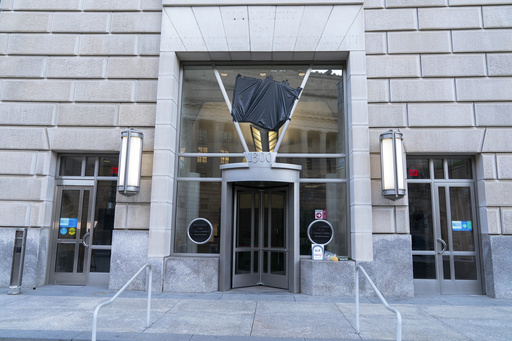
A federal judge issued a significant ruling on Friday that momentarily halts attempts by President Donald Trump and his supporter Elon Musk to dismantle the U.S. Agency for International Development (USAID). The ruling aims to stop the administration’s plan for swiftly removing thousands of agency personnel from their roles.
U.S. District Judge Carl Nichols, appointed by Trump, determined that the administration’s directives to place these USAID workers on immediate administrative leave were too abrupt. This decision would have forced them to relocate their families back to the U.S. within just 30 days, creating unnecessary risk and financial burden for the employees and their families.
In his ruling, Nichols referenced testimonies from employees stationed abroad, highlighting that in the rush to shut down the agency and its international initiatives, some workers lost access to vital communication tools like government emails, which could be crucial in emergencies. Reports also revealed that toolkits meant for urgent communications, such as panic button apps, were disabled for those working in high-risk areas like the Middle East after the administration’s sudden furloughs. “Administrative leave in Syria is not the same as administrative leave in Bethesda,” he emphasized, noting the vastly different conditions under which these employees operate.
The judge’s order also noted that many USAID staff, after years assigned overseas, found themselves without a home to which they could return in the U.S. Additionally, the children of some employees would face disruption to their education if relocated mid-academic year. In light of these challenges, Nichols required that employees already placed on leave be reinstated. However, he did not take action on a request from federal employee organizations to block a funding freeze instigated by the Trump administration, which has stifled the agency’s functions.
Nichols was clear that his ruling did not equate to a decision on the broader issues surrounding the administration’s efforts to dissolve the agency. Trump recently expressed strong opinions on social media about privatizing or closing down USAID entirely.
Opposition from the American Foreign Service Association and the American Federation of Government Employees has underscored their belief that Trump cannot unilaterally shutter the agency without Congressional approval; democratic lawmakers have voiced similar concerns. In response to the administrative changes, workers seen on site have physically altered USAID’s building façade, scrubbing its name from the exterior and removing agency flags.
The Trump administration, alongside Musk’s new Department of Government Efficiency, has marked USAID as a primary target in an aggressive initiative to revamp federal programming. These groups have halted nearly all agency funding, impacting global aid and development programs while placing personnel on leave and restricting access to internal communication channels. There are also claims that USAID’s computer servers were removed from the agency.
“This represents a comprehensive dismantling of an entire agency’s workforce,” stated Karla Gilbride, lawyer for the involved employee organizations, during the hearing. In contrast, Justice Department attorney Brett Shumate maintained that the administration is within its rights to manage employee leave at large, noting that these actions are commonplace.
Friday’s judicial outcome adds to a series of legal challenges faced by the Trump administration, which has seen several of its policy initiatives—such as providing incentives for government employee resignations and altering birthright citizenship rules—temporarily paused by the courts.
Earlier in the day, several USAID officials refuted claims made by Secretary of State Marco Rubio regarding the continuation of critical life-saving programs that supposedly received waivers. They confirmed that no programs had, in fact, been authorized for sustained funding. This includes pivotal food and water aid crucial for millions affected by conflict in regions like Sudan’s Darfur.
The judge’s intervention focused on the recent administrative decision to withdraw almost all USAID personnel from active service. Trump and Republican members of Congress have indicated a plan to potentially transfer a reduced number of aid initiatives under the auspices of the State Department. However, fear persists within the State Department regarding substantial staff cuts following a financial incentive offer for federal resignations, which has been temporarily blocked by a judge.
With an initial 30-day timeline provided for overseas staff to return stateside, the administration’s actions prompted diplomats to seek exemptions for employees who couldn’t feasibly comply, especially for families needing to transition children out of schools mid-term. A notice from USAID later indicated that no staff would be compelled to leave their international posts, though those choosing to stay beyond the allotted time may incur personal costs unless they qualified for a hardship waiver.
Rubio maintained that the government would support staff returns within the specified timeframe, emphasizing a focus on aligning foreign aid with national interests while addressing claims of agency obstruction. He stated, “We will continue to provide foreign aid, but it is going to be foreign aid that makes sense.”

